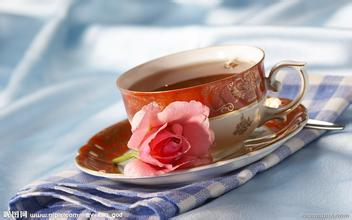Introduction to the characteristics of Fine Coffee Flavor Manor in Bali, Indonesia
In 1908, the Dutch flag was finally planted all over Indonesia and Bali, and the Bali aristocracy ended the era of aristocratic rule in several Puptan rituals that committed suicide for dignity. The Dutch ruled Bali for 34 years, then the Japanese occupied it for another three years during World War II; it was not until 1949 that the Netherlands withdrew from Indonesia with the intervention of the United Nations, and the moderate Bali of the islanders naturally became a province of Indonesia after independence.
Buddhism and Hinduism began to be introduced into Bali during the dynasty of Sharentra, the Buddhist kingdom of Java. Elka unified Bali and Java for the first time, and then after the Neo-Keshari dynasty, Manopacher, the Hindu kingdom of Java, reunified the two places in 1343. Hinduism began to enter Bali on a large scale and integrated with the original Buddhism. In 1515, the Islamic Kingdom emerged and replaced Manobacher, so many Hindu elites fled to Bali, thus beginning the prosperity of Hindu civilization.
In 1550 Gbatu still established the first Bali kingdom.
Westerners came to the island for the first time in 1588. It is said that three Dutch navigators arrived on the island after a shipwreck, but only one of them was willing to go back when they were able to take a boat home, which shows the charm of Bali. Then it entered the Dutch colonial period. For a long time, the colonists focused on resource plunder (spices, timber, etc.) and maritime trade in Java and Sumatra, without including Bali.
Until the early 20th century, when the Dutch decided to conquer the island, the Balinese natives chose to commit mass suicide after their resistance was futile. In 1906, almost all the royal aristocrats of Denpasar committed suicide in front of the Dutch army (the monument in Denpasar Municipal Square commemorates this event). The suicides caused a shock after the news spread to Europe, forcing the colonists to exercise more humane rule, thus preserving the traditional cultural characteristics of Bali.
Romantic Bali aristocratic Bali coffee
Bali Coffee is a tone, a harmony and a song. She is the beat of the waves on the coast of Kuta, the beat of Mozart drums and the chirping of aristocratic people in the cafe.
Bali is one of the most beautiful and distinctive tourist attractions in the world, with its unique natural scenery, ancient civilization and unique local folk art, beautiful beaches, exquisite handicrafts, graceful music and dance, it's almost a Shangri-La on earth.
Bali's most famous golden coffee grows at an altitude of 1500 meters, and enjoys the influence of golden coffee culture in Bali. While tasting the bitter, sweet, fragrant but not sour coffee characteristics of golden coffee, the wonderful tropical island customs have been calling for your next encounter in 1866, Ambassador Ali opened the first coffee shop in Paris, France, in the name of his hometown "Bali Coffee BLD Coffee". Until today, the "Bali Coffee" near the place Bastille in Paris is still permeated with a strong aristocratic culture. The strong cultural atmosphere here is like the fragrant fog drifting out of the coffee cup, which can be smelled and within reach, and the fashion formed by the party has not only affected Paris for nearly a century, but also promoted the spread of coffee culture to the world.
Bali coffee, known as "aristocratic coffee", is the most classic of French coffee culture. It is very popular both in France and in Europe and around the world. In particular, it is permeated with a strong aristocratic culture, and it is a favorite of coffee lovers.
The French court is the center of French political and cultural life, and the salon of upper-class society has been leading the mass culture and life style of France. The relaxed, elegant, romantic and colorful way of life of the royal aristocracy has affected the interest of the public. In the social life of the common people, especially the intellectuals, the coffee shop inherits some of the communicative functions of the aristocratic salon. Ambassador Ali's mission is to use circuitous coffee diplomacy to disintegrate the French dynasty which is preparing to move eastward. Luxurious and tasteful ornaments, wonderful music, well-cooked food. The social gathering held by Ambassador Ali immediately became a popular place in Paris. Everything there is so admirable and intoxicated. What is even more wonderful is a "fantasy drink" introduced by the ambassador. The silk cloth, made in Damascus, was made in Damascus. The exquisite porcelain cup on the silver tray came from as far away as China. The Nubian Negro, dressed in bright Turkish clothes, was handsome, obedient and considerate. He knelt down and poured steaming, fragrant black soup into the guest's porcelain cup. This scene is a wonderful experience that the ladies have never experienced before.
The coffee party completely conquered the Paris aristocracy, and Ambassador Ali won the heart of the princess. Soon, there was good news from Versailles that the Kingdom of France and Sumatra formed a friendly alliance. The story of Bali coffee may be one of the most fascinating and romantic stories in coffee history.
In 1862, in the resplendent Palace of Versailles, the Sun King Louis XIV sat dangerously, the priceless, legendary 67-carat blue diamond of hope on the crown, dazzling, and the aristocratic ministers present at the court were dressed in gold and silver. They are waiting for the ambassador from the distant and magical ancient oriental country-Suleiman Ali Suleiman Ali

Important Notice :
前街咖啡 FrontStreet Coffee has moved to new addredd:
FrontStreet Coffee Address: 315,Donghua East Road,GuangZhou
Tel:020 38364473
- Prev

Introduction to the Flavor and Taste of Kilimanjaro Coffee Manor in Tanzania
The types of rainfall can be divided into bimodal distribution and unimodal distribution. The areas with double bee rainfall include the provinces around the Lake Victoria basin, the northeast highlands, the coastal and inland northeastern. The bimodal rainfall area is characterized by two rainy seasons. The short rainy season occurs from September to December. The total rainfall can reach 200-500 mm. The long rainy season occurs from March to May.
- Next

Introduction to the flavor and taste characteristics of the unique and strong flavor of Costa Rica Yersalo Coffee Manor.
The topography of Costa Rica is that the coast is surrounded by plains, while the middle is cut off by rugged mountains. The country declared 200 nautical miles in its exclusive economic zone and 12 nautical miles in its territorial sea. The climate belongs to the tropics and subtropics, and some of them are new tropics. [3] the climate of Costa Rica is so different that it completely subverts the classification of the four seasons of the year. There are only two seasons, April to December.
Related
- Detailed explanation of Jadeite planting Land in Panamanian Jadeite Manor introduction to the grading system of Jadeite competitive bidding, Red bid, Green bid and Rose Summer
- Story of Coffee planting in Brenka region of Costa Rica Stonehenge Manor anaerobic heavy honey treatment of flavor mouth
- What's on the barrel of Blue Mountain Coffee beans?
- Can American coffee also pull flowers? How to use hot American style to pull out a good-looking pattern?
- Can you make a cold extract with coffee beans? What is the right proportion for cold-extracted coffee formula?
- Indonesian PWN Gold Mandrine Coffee Origin Features Flavor How to Chong? Mandolin coffee is American.
- A brief introduction to the flavor characteristics of Brazilian yellow bourbon coffee beans
- What is the effect of different water quality on the flavor of cold-extracted coffee? What kind of water is best for brewing coffee?
- Why do you think of Rose Summer whenever you mention Panamanian coffee?
- Introduction to the characteristics of authentic blue mountain coffee bean producing areas? What is the CIB Coffee Authority in Jamaica?

